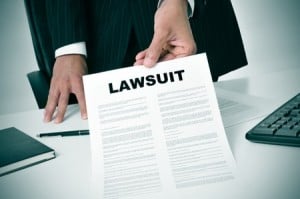Will Landlords Have to Answer for Awful Neighbors?

Last year, the U.S. Department of Housing and Urban Development proposed a controversial rule that would establish liability under the Fair Housing Act for housing providers that fail to address discrimination against their tenants by third parties — including other tenants. The Fair Housing Act prohibits refusing to sell or rent a dwelling to any person because of race, color, religion, sex or national origin.
The Office of Management and Budget concluded its review of the proposal earlier this month, one of the final steps before a rule becomes final, according to the agency’s website. Often rules become final within 30 days of clearing the OMB review.
There’s no guarantee the liability provision will make the final rule, especially in light of objections from public housing authorities and landlords. A HUD spokesman confirmed the rule was forthcoming but declined to comment on its final contents.
The rest of the proposal establishes standards for HUD officials and judges to use when considering complaints of hostile-environment and “quid pro quo” discrimination, which occurs, for example, when a landlord conditions continued housing on sexual favors from a tenant.
Under the proposed rule on liability, “a management company, homeowner’s association, condominium association, or cooperative” could be in violation of the Fair Housing Act if the housing provider “knew or should have known that a resident was harassing another resident, and yet did not take prompt action to correct and end it.”
A housing provider could take a range of corrective actions, including written warnings, moving or evicting a harassing tenant or reporting him or her to police, the proposal says.
The National Association of Housing and Redevelopment Officials, which represents the managers of more than 80% of the nation’s public housing, said in a December letter to HUD that housing providers lack the resources and reach to police their tenants’ interactions, leaving them vulnerable to lawsuits under such a rule.
“There is a great concern that this rule will make [public housing authorities] mediators between neighbors who are having disagreements,” a policy analyst for the group wrote.
The Council of Large Public Housing Authorities argued in a separate letterthat a landlord can’t be held liable under the Fair Housing Act absent an intent to discriminate, saying the proposal “improperly expands the reach of the FHA beyond the scope authorized by Congress.”
“Scenarios where tenants may potentially harass other tenants on topics that are not related to the terms of tenancy or where the harassment may not take place on the property are particularly worrisome,” the letter says.
The National Low Income Housing Coalition, which advocates for people who receive or are in need of federal housing assistance, said the rule proposal was in keeping with the duty of housing providers to ensure “habitability.”
“Any suggestion that this rule will unduly burden housing providers is exaggerated,” the group said in a letter last year to HUD.
Source: blogs.wsj.com















 Accessibility
Accessibility